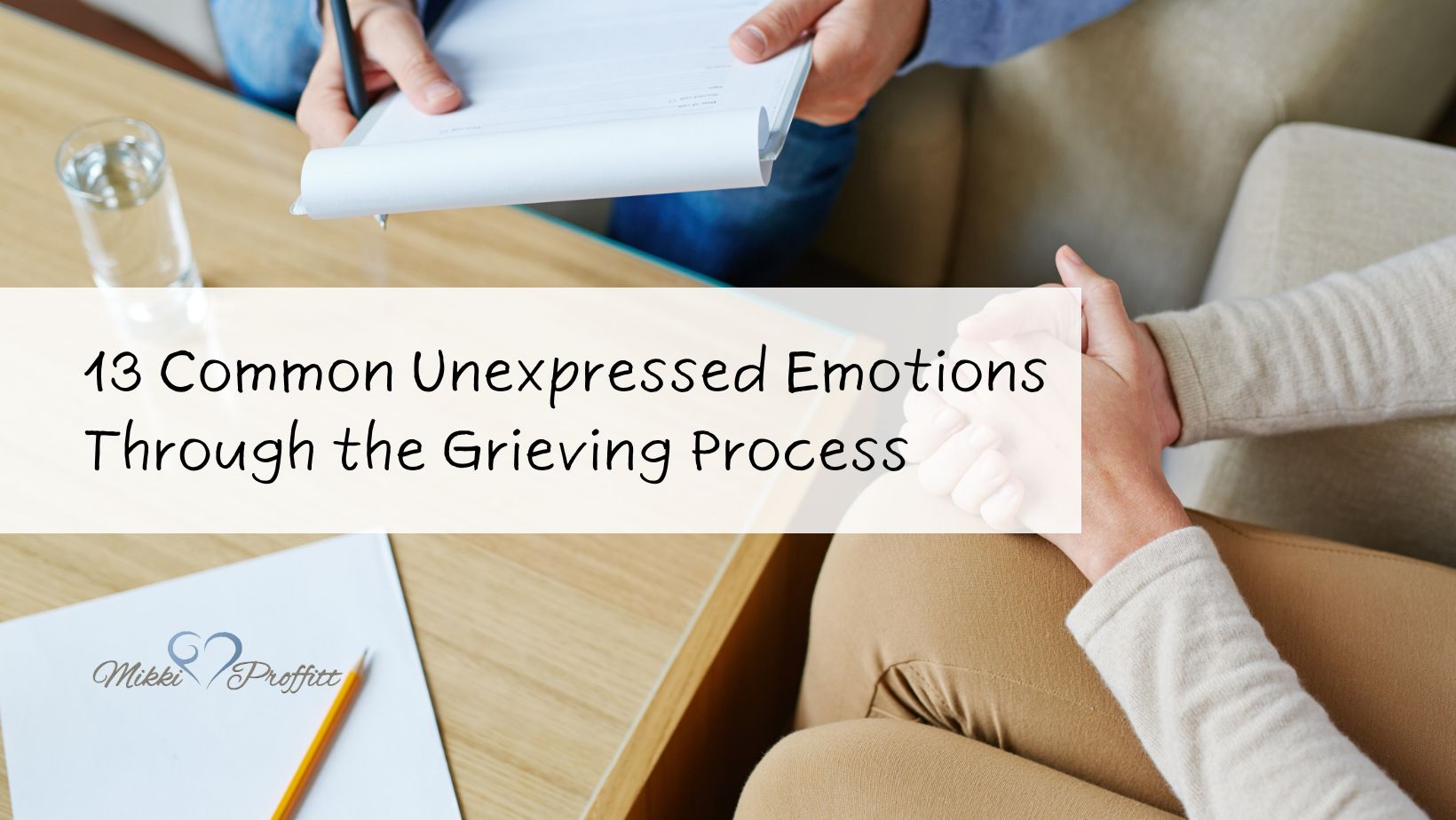The unexpressed emotions of loss and grief can be deeply impactful and, if left unaddressed, may lead to prolonged and complicated grieving processes. Here are some of the common unexpressed emotions that individuals may experience:
Guilt
Feeling like you could have done more, said something different, or prevented the loss in some way. It’s important to remember that guilt is a common but often irrational emotion in grief.
Anger
This might be directed towards the person who passed away, towards yourself, or towards the situation. Anger can be complex and may stem from feelings of injustice or powerlessness.
Regret
This can manifest as a longing for things to have been different, for opportunities missed, or for words left unsaid. It’s important to acknowledge these feelings and find ways to make peace with them.
Shame
This can arise from feeling like you should be handling the grief differently or from judgments about how others perceive your grief. Remember that there is no ‘right’ or ‘wrong’ way to grieve.
Fear
Grief can bring up existential fears about mortality, the uncertainty of life, and the impermanence of relationships. These fears can be unsettling and may need to be explored with compassion and understanding.
Isolation
Sometimes, people may withdraw or isolate themselves in an attempt to protect themselves from the pain of grief. This can lead to a sense of loneliness and disconnection.
Relief
If the loss was preceded by a long illness, suffering, or a difficult relationship, you may feel a sense of relief that the person is no longer in pain. This can be a confusing and conflicting emotion.
Confusion
Grief can be disorienting and may lead to feelings of confusion, especially if the loss is sudden or unexpected.
Unresolved Issues
Sometimes, there may have been unresolved conflicts or unspoken feelings with the person who passed away. These lingering emotions can add an extra layer of complexity to the grieving process.
Longing and Nostalgia
You might find yourself yearning for the past, wishing for one more conversation or moment with the person who is gone.
Loss of Identity
If your identity was closely tied to the person you lost (e.g., a spouse, child, or caregiver), you may feel a profound sense of loss of self.
Envy or Bitterness
Seeing others who haven’t experienced the same loss can trigger feelings of envy or bitterness. It’s important to remember that everyone’s journey is unique.
Overwhelming Sadness
Some may be afraid to fully feel and express the depth of their sadness, fearing it might be too much to handle.
It’s crucial to find healthy and constructive ways to express these emotions. This can include talking to a trusted friend or therapist, writing in a journal, engaging in creative expression, or participating in support groups.
Remember that seeking help is a sign of strength, and there are resources available to support you through the grieving process.



0 Comments